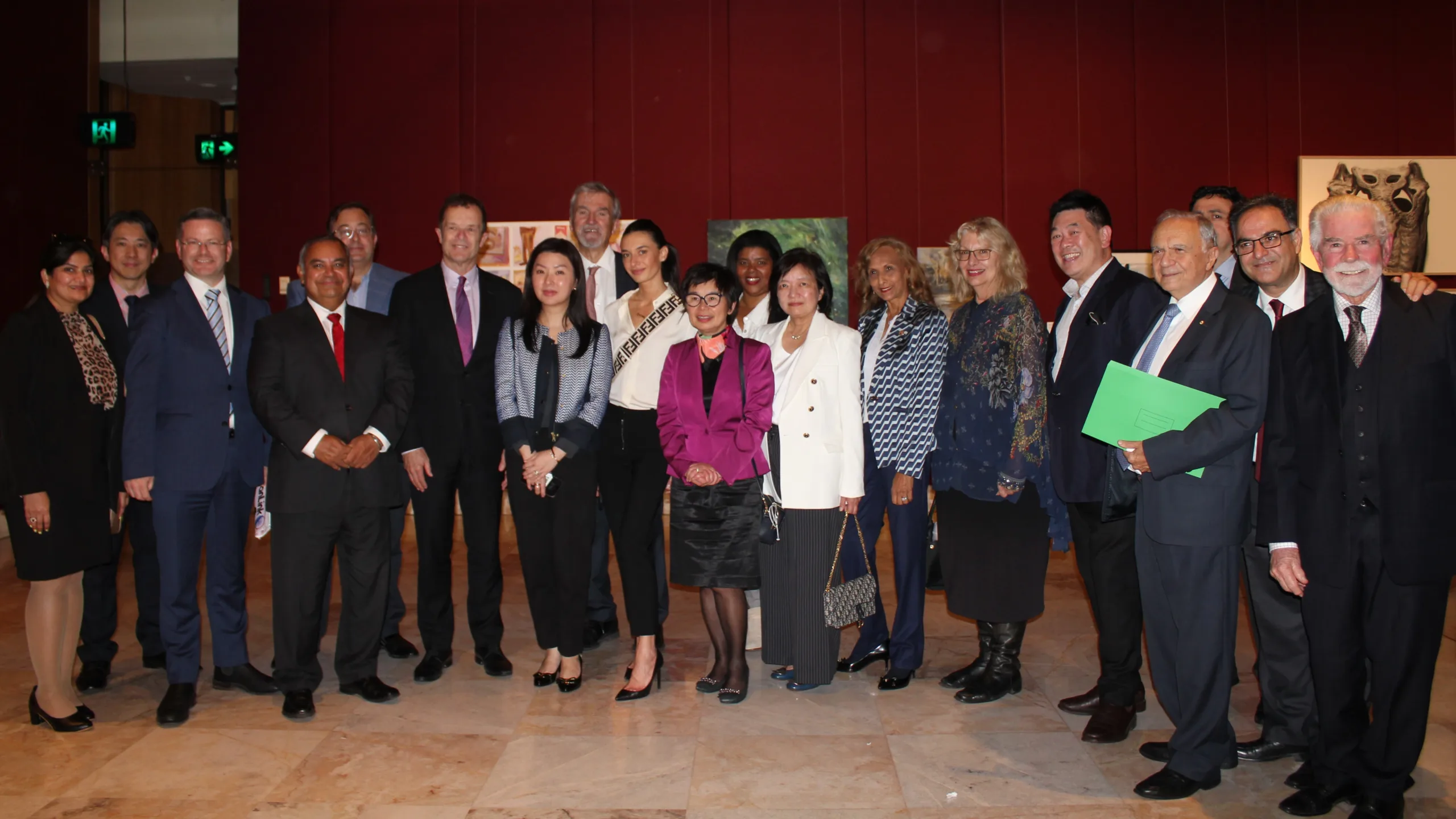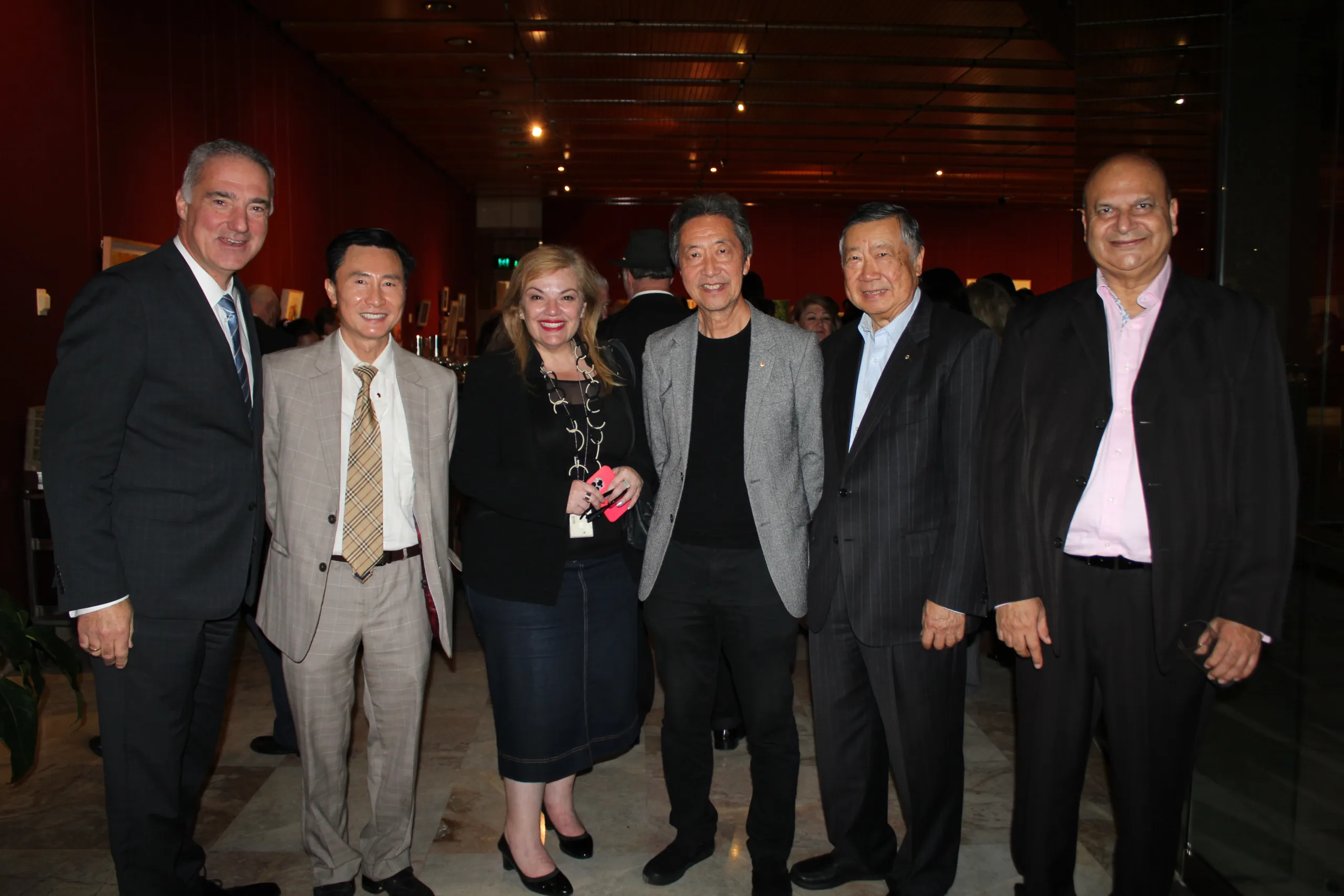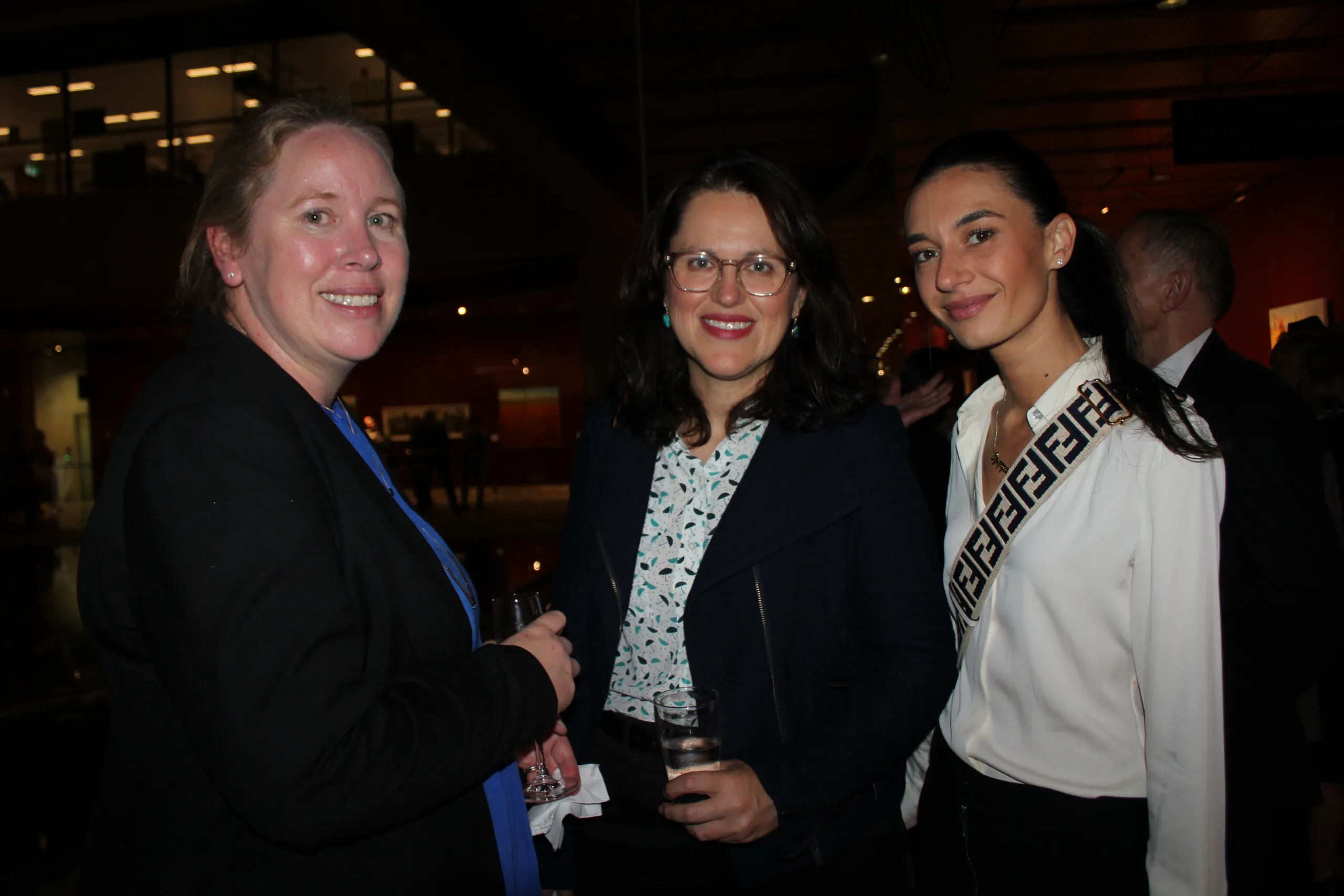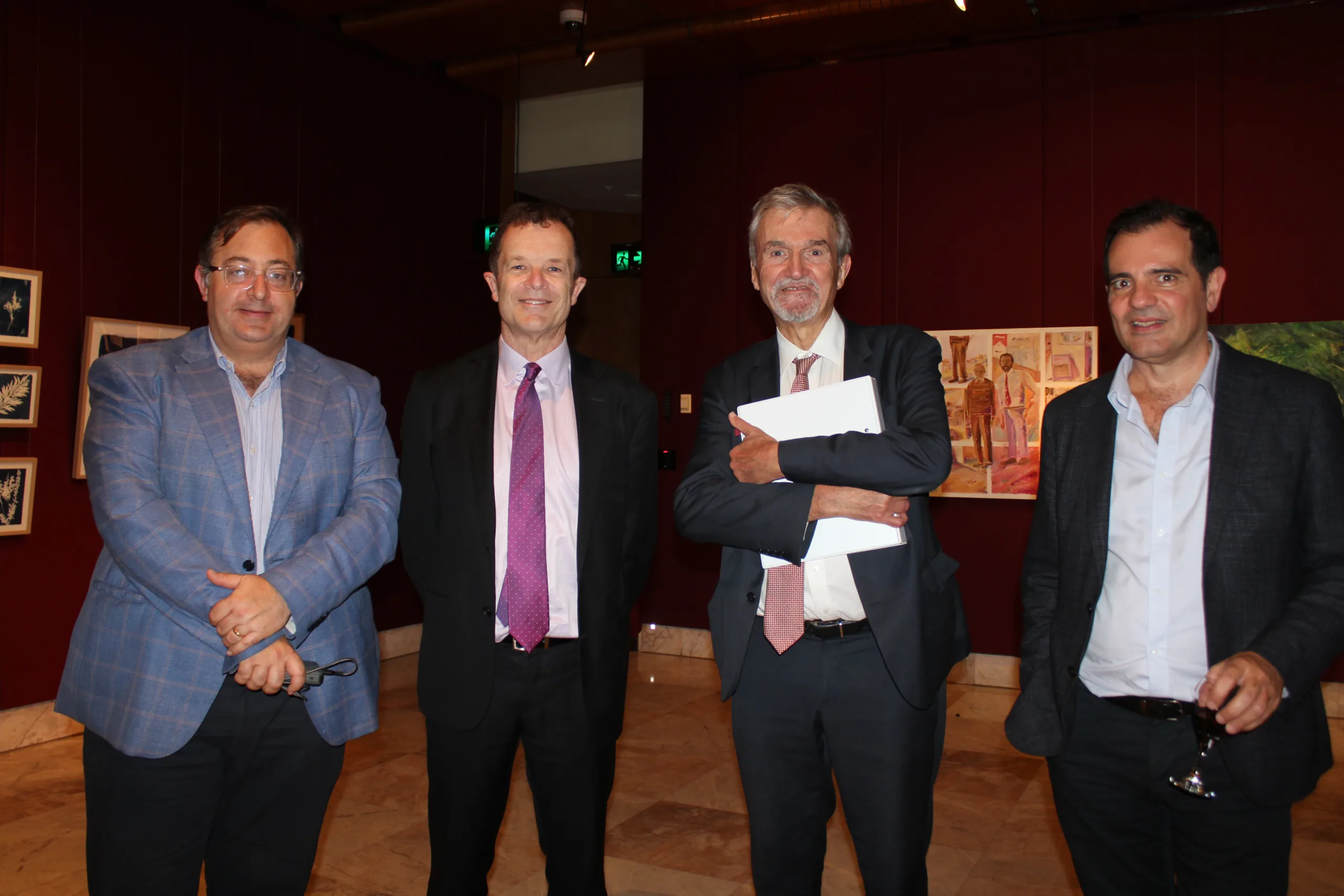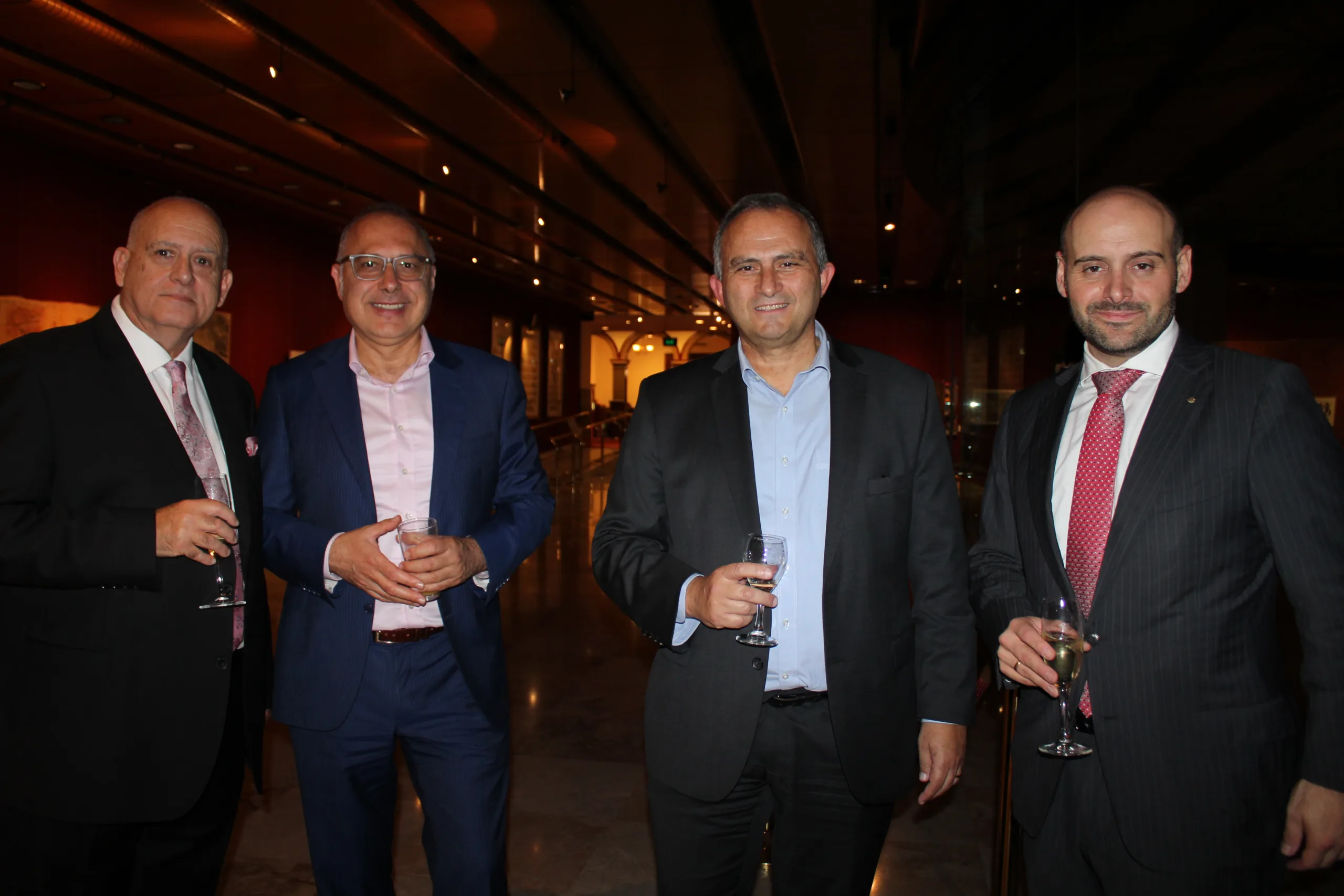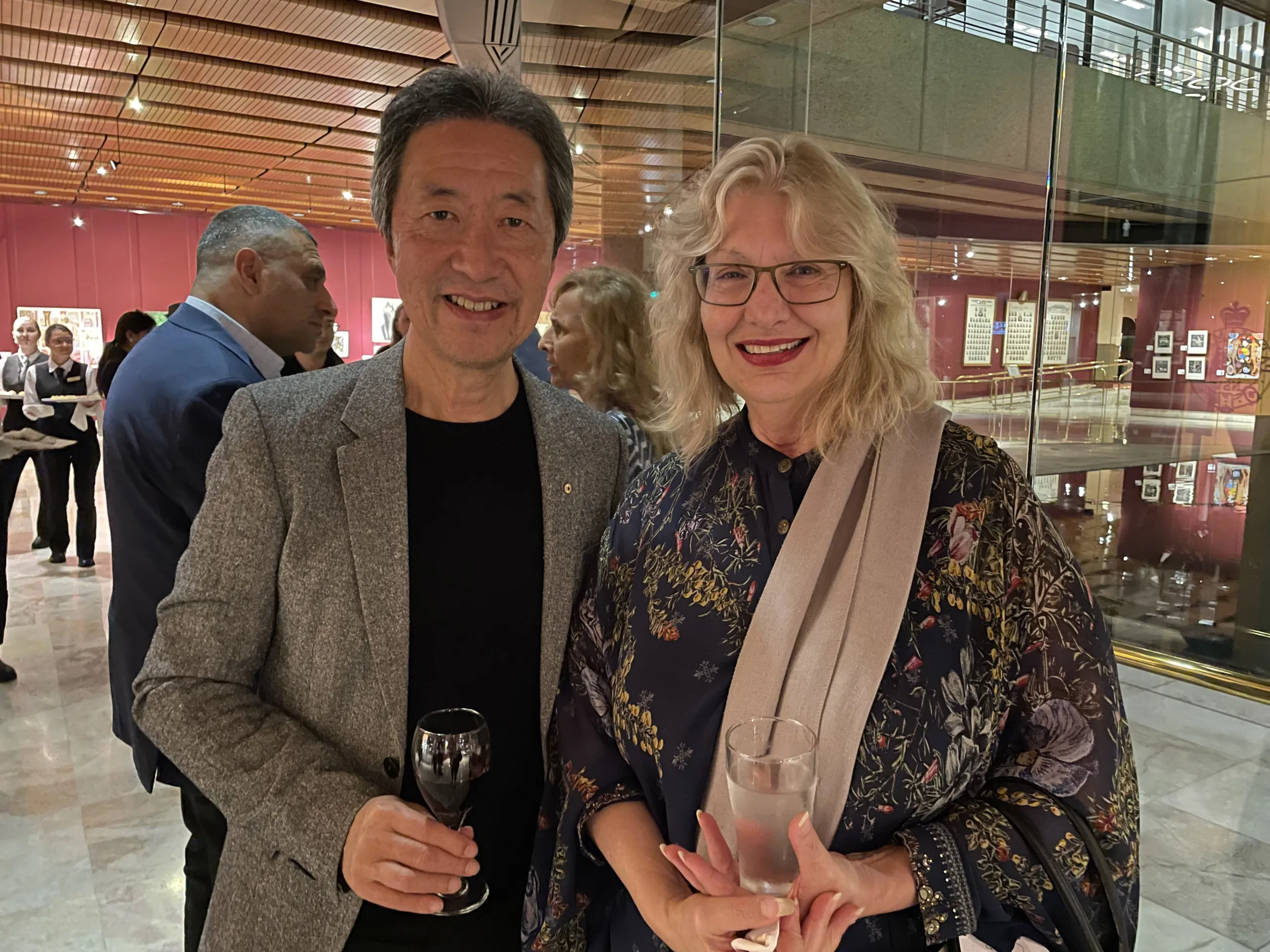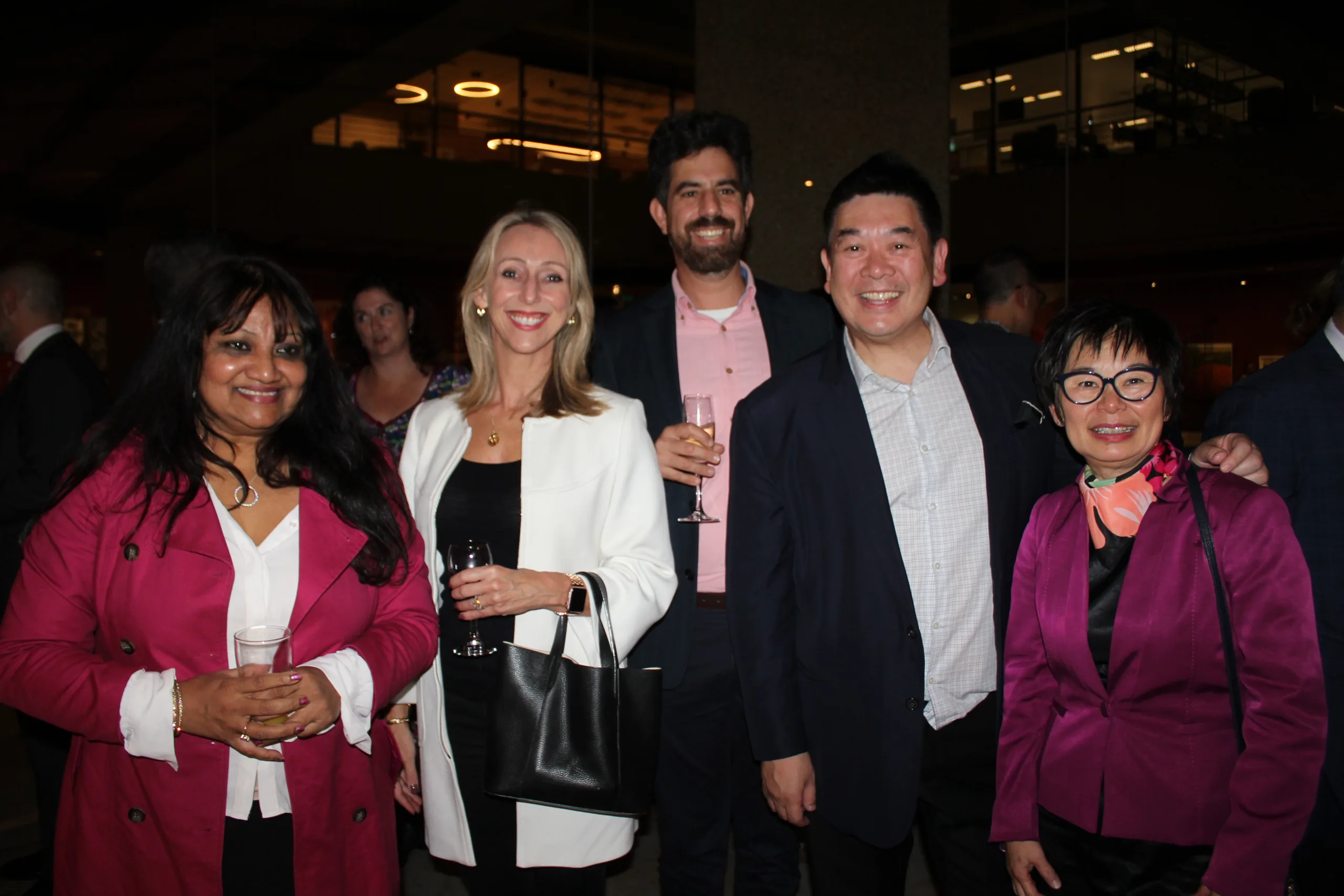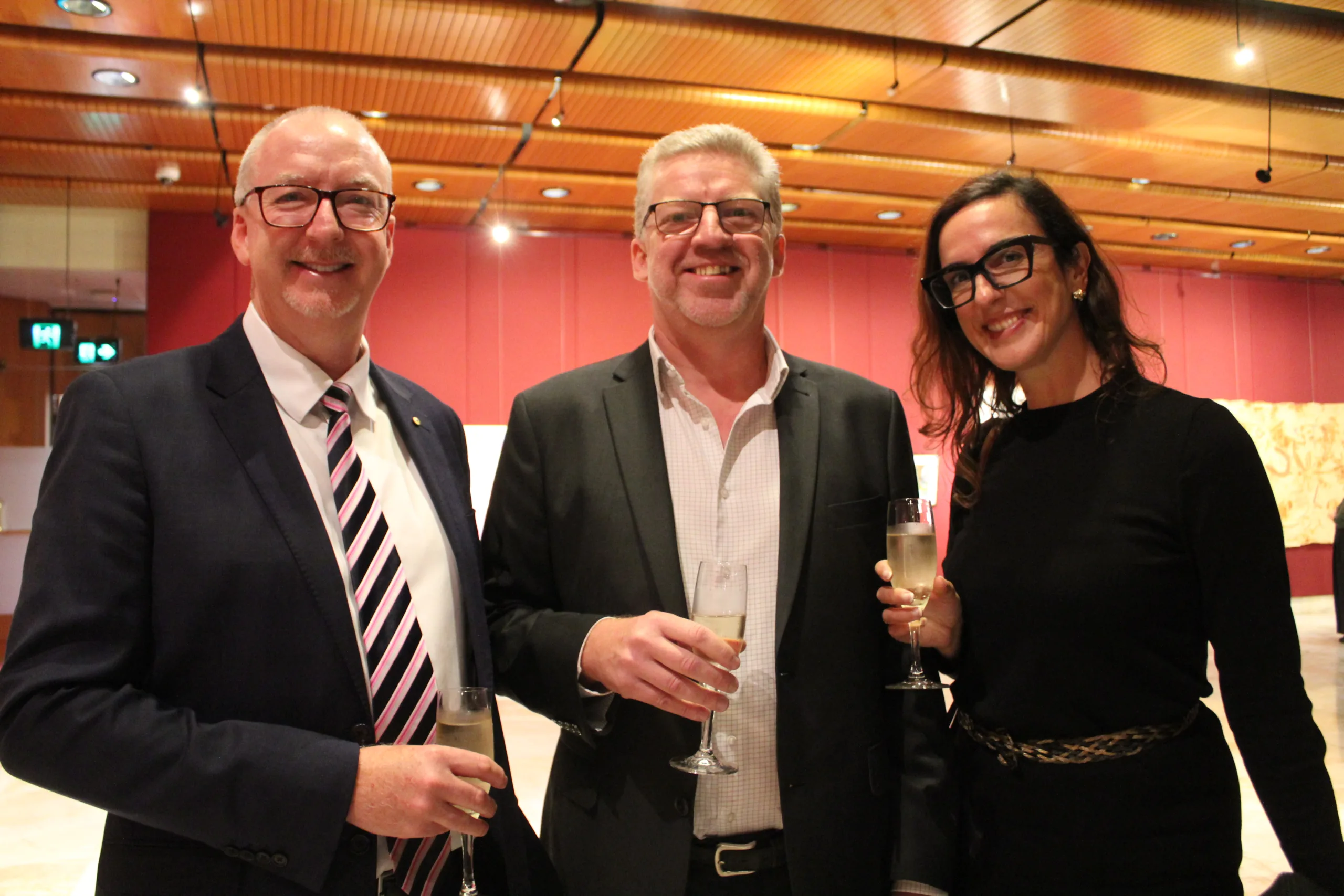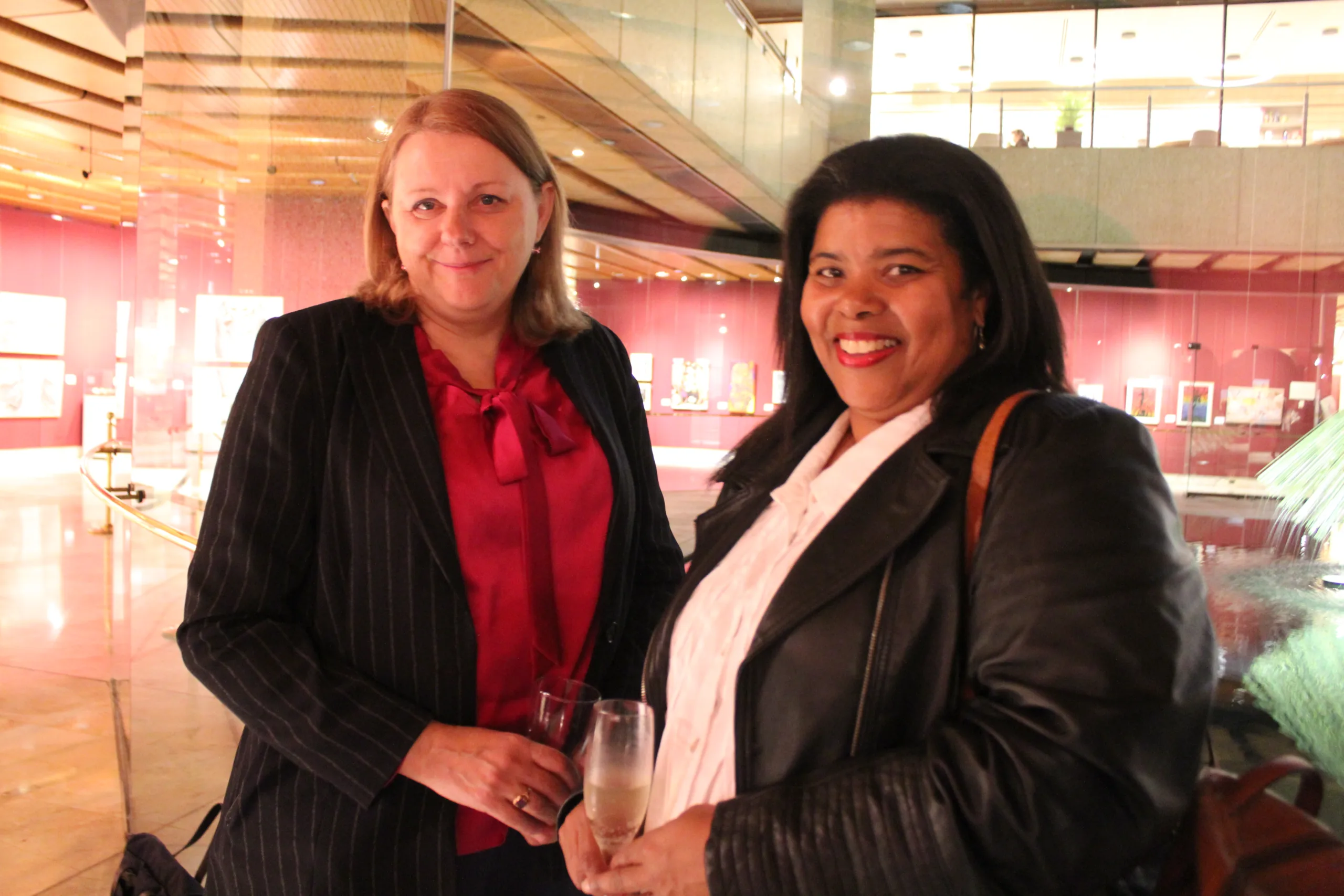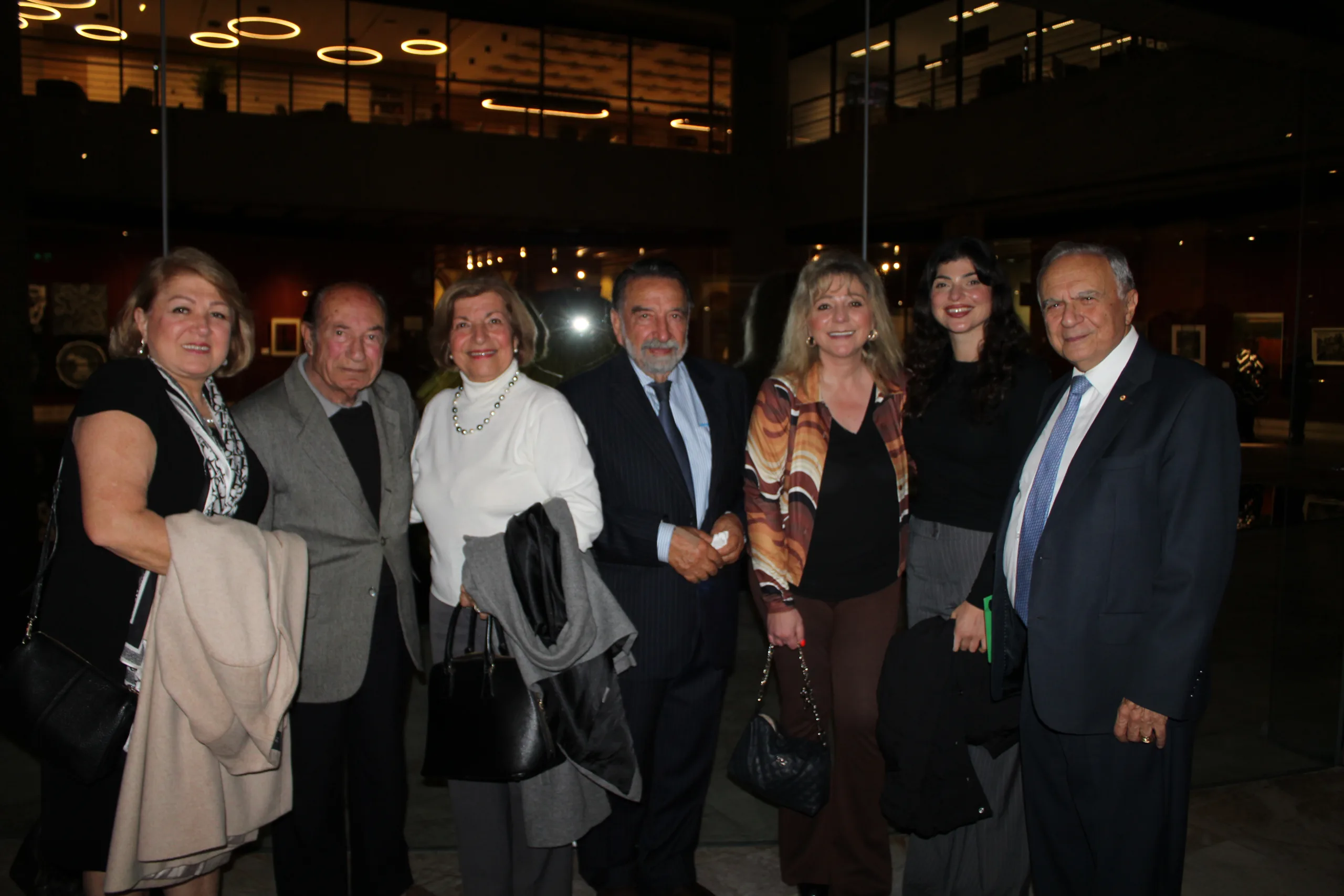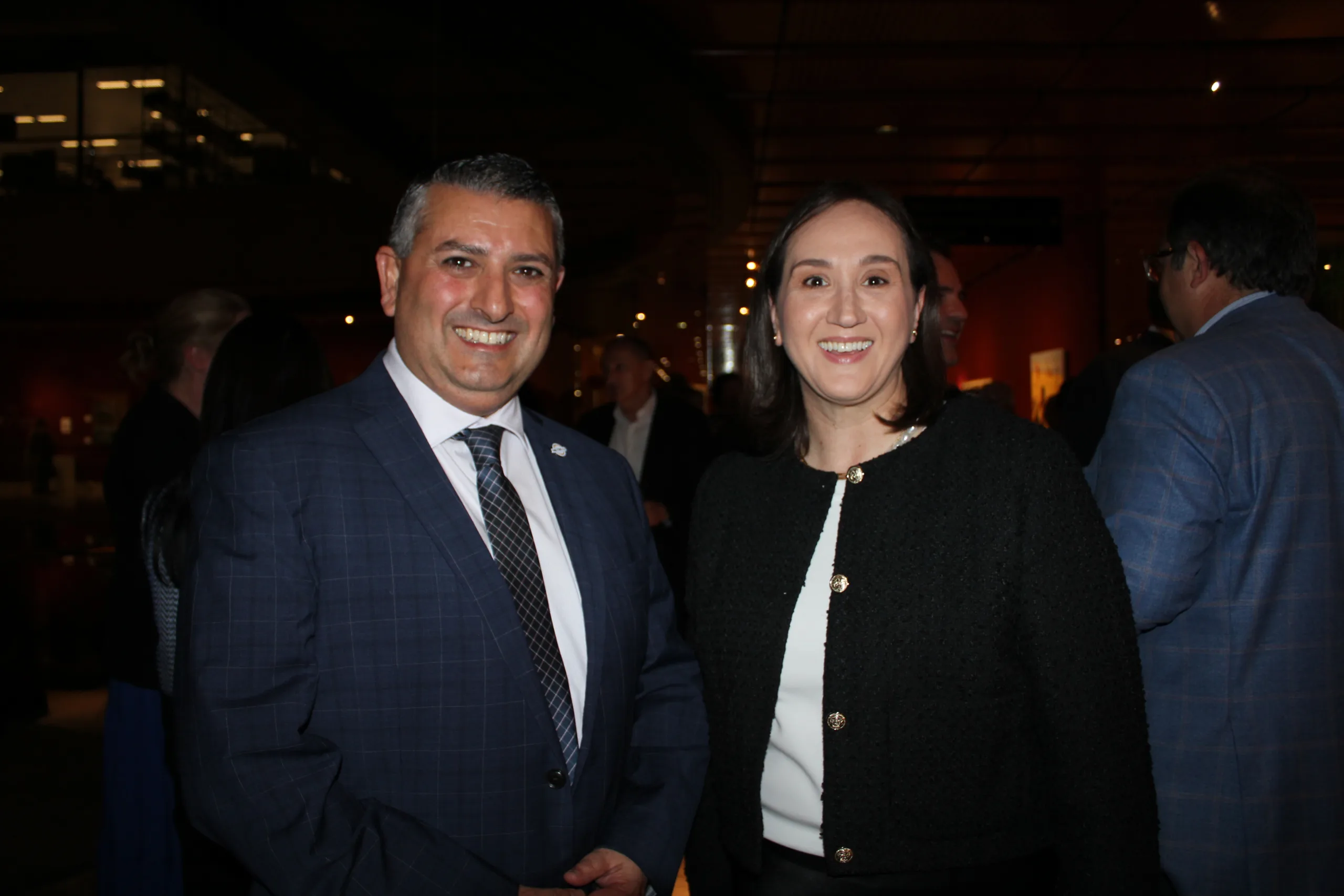As close to 100 people mingled and enjoyed light refreshments at the NSW Parliament Fountain Court on Wednesday, May 15, the topic of conversation was the role of multicultural media in public interest journalism, and how it can work with governments and ethnic communities to safeguard its future.
The event was organised by the Independent Multicultural Media Australia (IMMA) association titled ‘Diverse Voices, Inclusive Views: Multicultural Media’s Vital Role in Shaping Australia’s Media Landscape.’ The event was hosted by the NSW Minister for Industrial Relations, Sophie Cotsis MP, and supported by Business Sydney.
Joining in on the discussions was Leader of the NSW Liberals party, Mark Speakman MP; NSW Parliamentary Secretary for Multiculturalism, Mark Buttigieg MLC; NSW Shadow Minister for Multiculturalism, Mark Coure MP; Member for Cabramatta, Tri Vo MP; Member for Willoughby, Tim James MP; Mayor of Waverley, Cr Paula Masselos; Cr Barbara Ward from Ku Ring Gai Council; Deputy Secretary, Customer, Delivery and Transformation at the NSW Department of Customer Service, Sarah Cruickshank; Multicultural NSW Advisory Board Members, George Vardas and David Yiang; and the Executive Director at Business Sydney, Paul Nicolaou.
They all listened intently as they spoke with publishers and members of IMMA about the narrative prowess of their ethnic outlets, the role they play in bridging gaps in mainstream coverage, and their positive impact on cultural maintenance.
A healthy media ecosystem
Afterwards, attendees gathered in the NSW Parliament Theatrette for the main event of the evening – a keynote speech by prominent figure in Australian multiculturalism Dr Stepan Kerkyasharian AO, and a panel discussion featuring IMMA publishers.
Emcee and IMMA Secretary Fotis Kapetopoulos officially opened the evening with a Welcome to Country, before introducing Mr Buttigieg to the podium to speak.
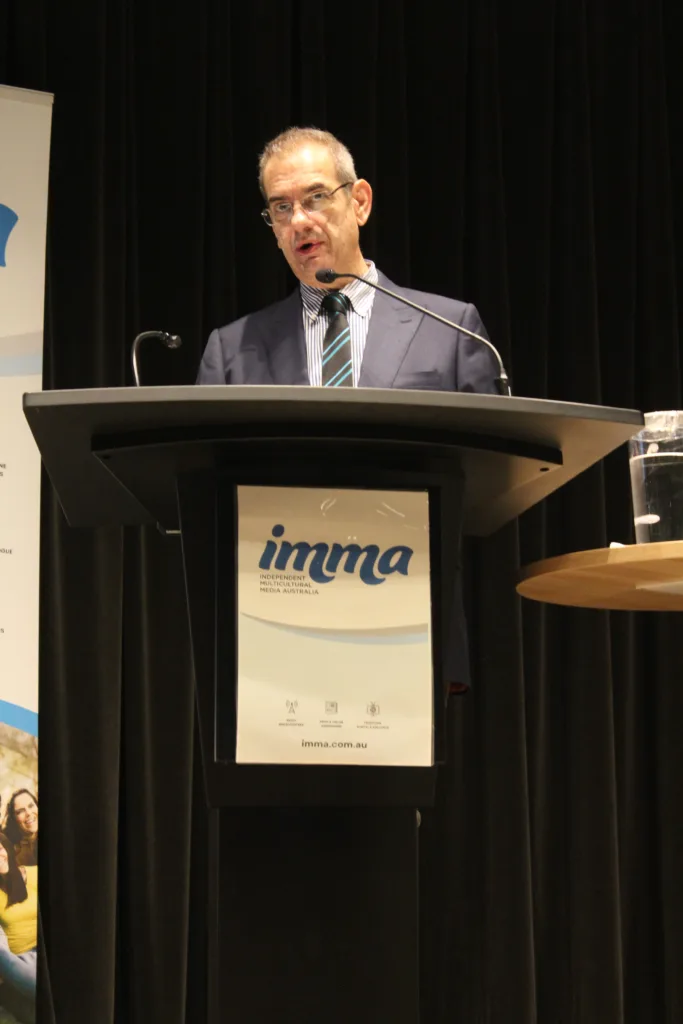
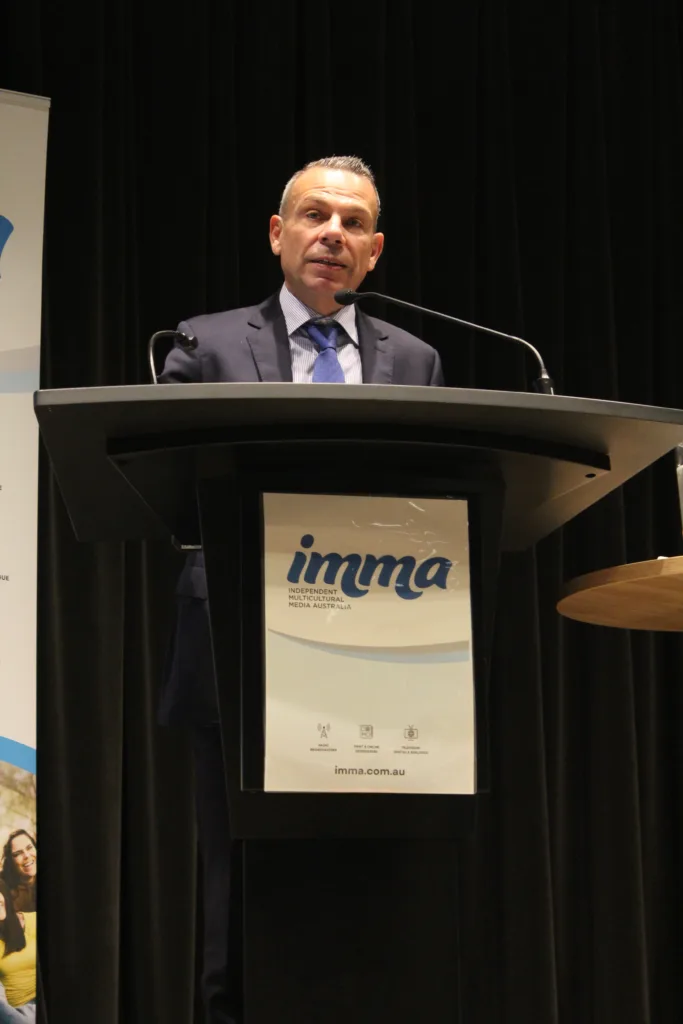
In his speech, Mr Buttigieg emphasised the importance of multicultural media in fostering multiculturalism in Australia, and touched on the NSW Government’s recent review of multicultural media and advertising spend.
“An impressive statistic is that you are talking to over 40 per cent of Australians via these mediums, and it’s no wonder that Australian multicultural media plays a crucial role in shaping not only our media more broadly, but also our society at large,” Mr Buttigieg said.
He also stressed the need for IMMA to work together with government to diversify amid the increasing digitisation of traditional print publications.
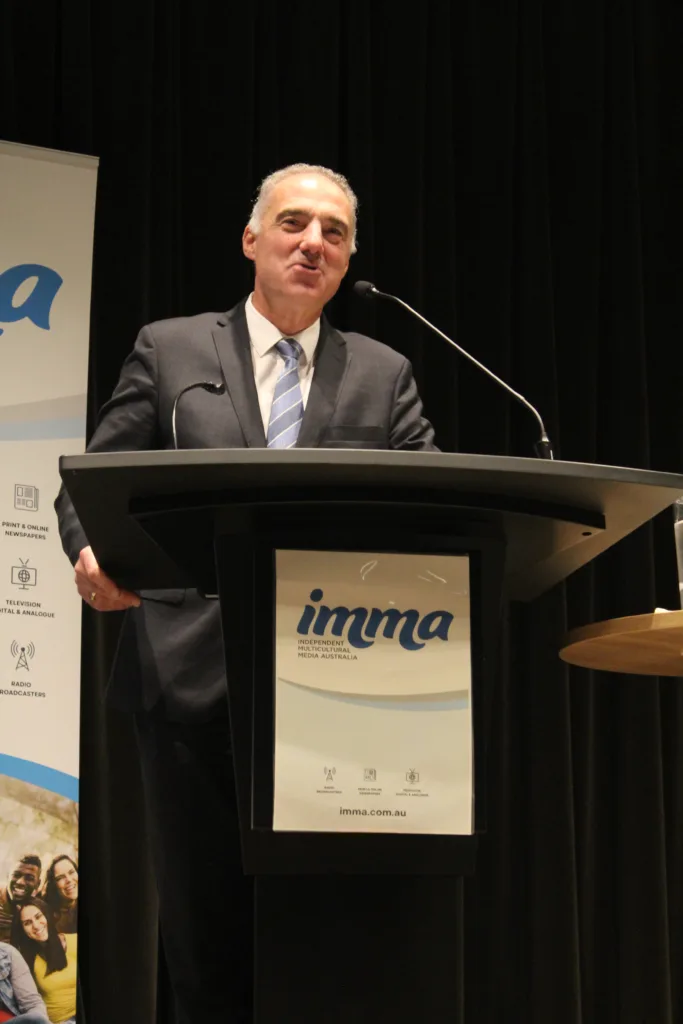
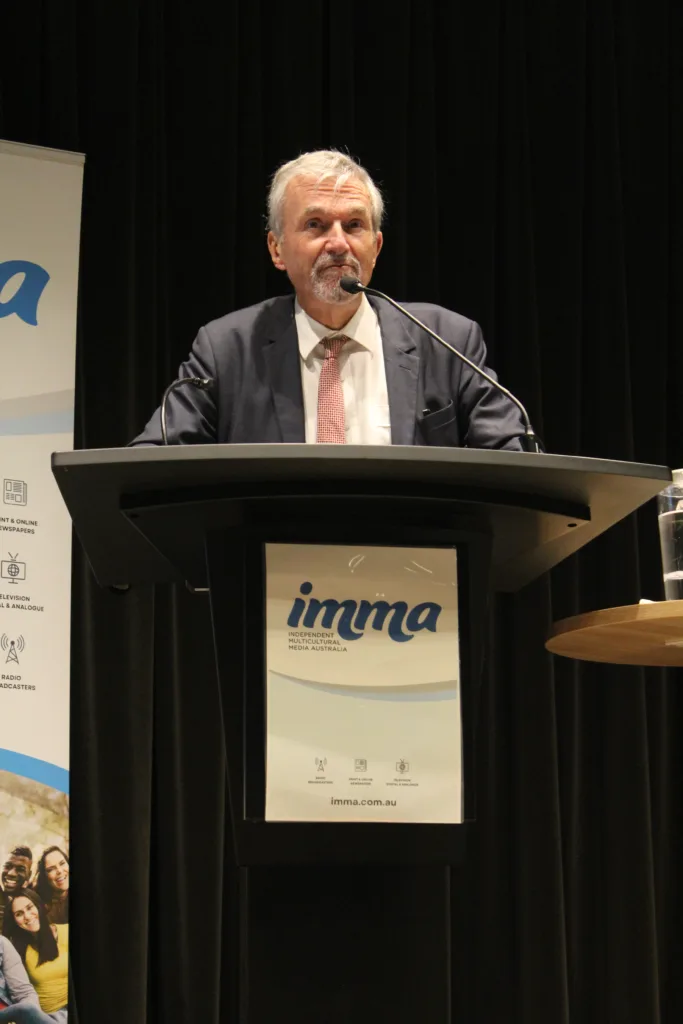
Mr Nicolaou spoke next and underlined the importance of multicultural media platforms for businesses and governments to reach diverse audiences. He also urged more organisations to consider advertising in multicultural media, describing them as “important platforms to educate the community on important issues.”
Mr Vardas also stressed the need for a healthy media ecosystem and strong independent multicultural media to ensure Australia’s values of multiculturalism and multilingualism were being supported.
Mr Vardas demonstrated the value of independent multicultural media in preserving cultural heritage and promoting public interest journalism by giving a personal example of his article in The Greek Herald calling for St George Greek Orthodox Church at Rose Bay to be heritage listed. He explained how the article was published in both Greek and English, and went on to become a public consultation document submitted for review by Woollahra Council. Mr Vardas credited The Greek Herald’s decision to publish a factual and in-language article that he believed led to the church ultimately being heritage listed.
Political, cultural and community strength
The evening’s Keynote Speaker, Dr Kerkyasharian, was a standout, offering insights into Australia’s multicultural society and government policies. He discussed the historical impact of ethnic media, the evolution of the media landscape over the past thirty years, and the future challenges facing multicultural media.
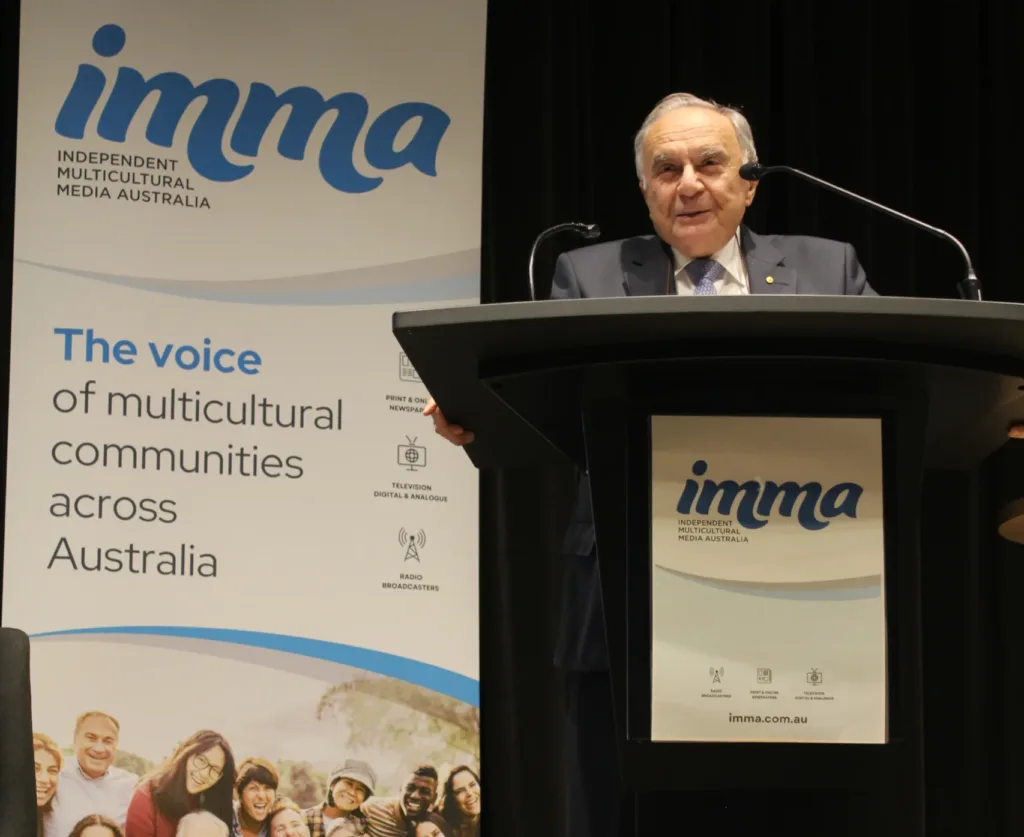
Mr Kerkyasharian stressed that initially Australia’s ethnic media was created to inform people about what was happening in their homeland, as well as to provide news about their community in Australia. But now, as Australia has achieved multiculturalism, ethnic media have a responsibility to maintain this momentum and reap its intellectual and social benefits.
In response, Mr Kerkyasharian encouraged multicultural media to think outside the box.
“Your publications and news coverage policy should – to some extent – mirror that of the mainstream media. Investigative journalism looking at issues which affect the daily lives of your readership and audience,” he said.
Two other solutions put forward by Mr Kerkyasharian include:
- Establishing more partnerships with mainstream media; and
- Using multicultural media as a “powerful teaching weapon” for students at language schools. This would ensure children are well aware of their own community and its activities, as well as provide them with the language necessary to discuss current events in their community.
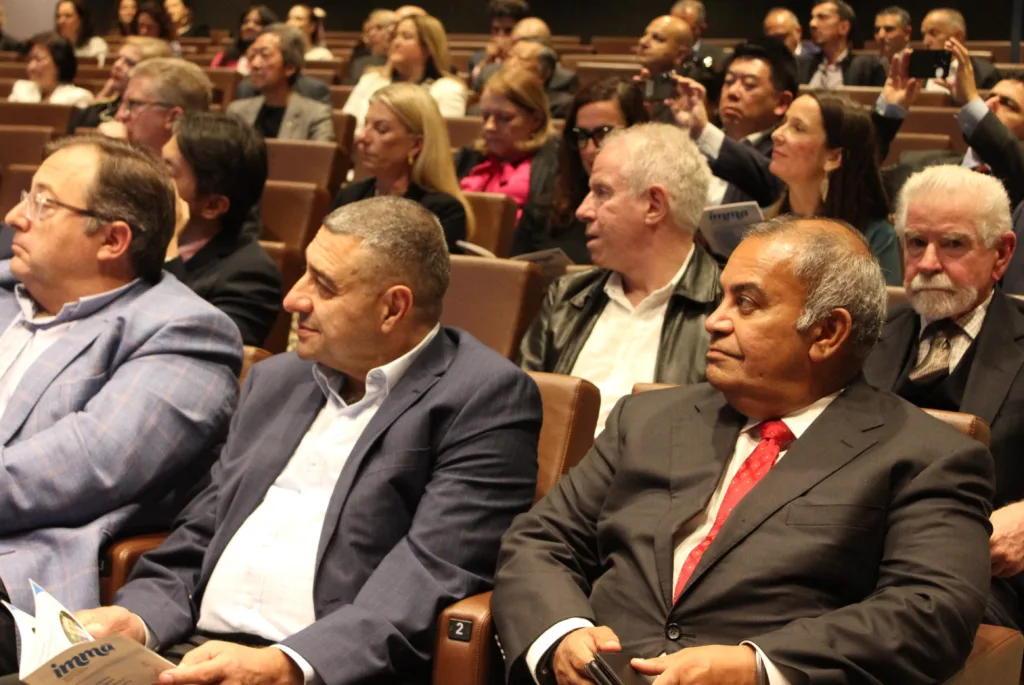
Mr Kerkyasharian concluded his speech by underscoring how multicultural media “are the most accurate, informative and contemporaneous testimony” of the undisputed role played by migrants to the development of modern Australia. He called for a deeper recognition of multicultural media by governments.
“Your archives are a national treasure and should be recognised as such. The Federal Government should establish a National Archive for all ethnic media publications as part of its policy of the preservation of national heritage,” he said.
Bridging gaps in the media landscape
Mr Kerkyasharian’s keynote speech was followed by an informative panel session canvassing current issues of public interest journalism, government and community engagement, crisis communications and digital transformation.
The panel featured David Giang, Managing Director of Vietnamese language newspaper, Chieu Duong (The Sunrise Daily) and Multicultural NSW Advisory Board Member; Wendy Huang, Managing Director of Chinese News and Media Group Pty Ltd & Publisher of the Chinese Herald; Sid Merhi Managing Director of 2ME Arabic Radio; Dimitra Skalkos, Managing Director of Foreign Language Press Pty Ltd and Publisher of The Greek Herald & Ellinis Magazine; Pawan Luthra, Publisher and Founder of Indian Link Media Group; Julius Larobina, Managing Director, Italian Media Corp and Publisher of Il Globo & La Fiamma; and Fotis Kapetopoulos, moderator and Secretary of Independent Multicultural Media Australia (IMMA).
Mr Merhi spoke passionately on the topic of multicultural media’s role in public interest journalism, accuracy and trust-building. He explained multicultural media’s ability to provide personalised, nuanced coverage of cultural issues, and placed emphasis on fact-checking as a priority of any multicultural publication to ensure it is a trusted source of information for its community. An example he cited was 2ME Arabic Radio’s recent coverage of the terror attack on an Assyrian Christian bishop at a Waverely church, and his team’s decision to fact-check and verify information from multiple sources before reporting on the breaking news.
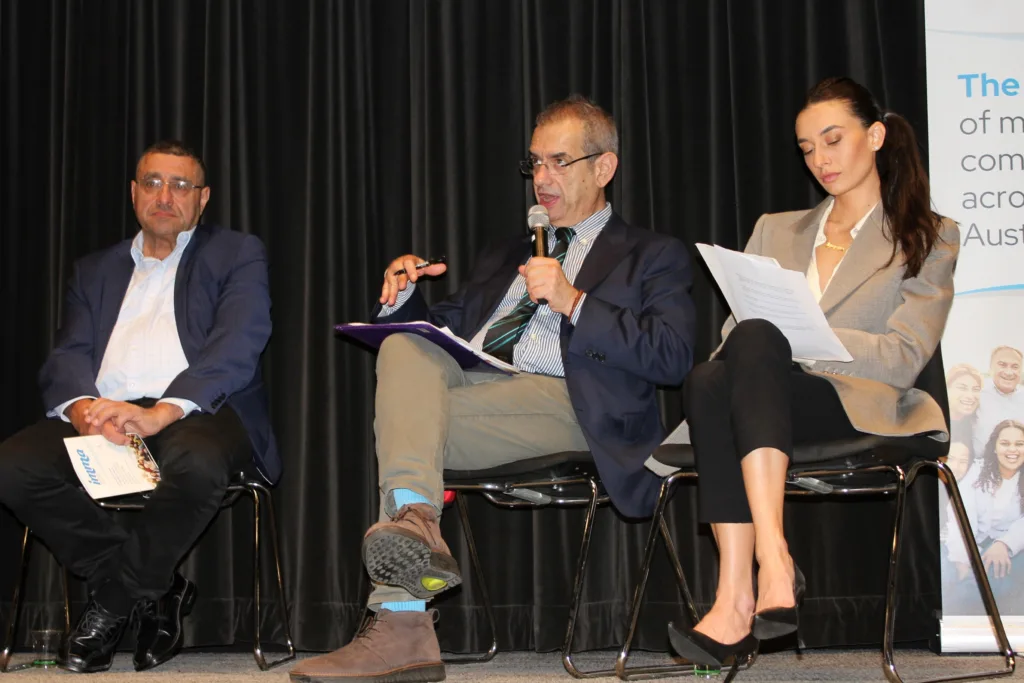
Ms Skalkos shared her experience as Publisher of The Greek Herald detailing how the publication has evolved and adapted to new digital platforms to deliver information in formats familiar to readers, including shifting from Greek to English editorial. She provided numerous examples of how The Greek Herald has diversified and worked closely with the Greek and Cypriot communities to stay relevant and engage with different demographics. These examples included launching multiple highly engaged social media platforms and hosting events such as The Greek Herald Cup, and championing initiatives like The Greek Herald Woman of the Year.
Mr Larobina picked up on this conversation and touched on how multicultural play a vital role in shaping media representation of different communities, and ensuring reporting is culturally sensitive rather than perpetuating pre-existing stereotypes. He also delved into the content selection process that is carefully curated for the Italian community his various media channels target. Mr Larobina highlighted that decisions are made not only about the material that should be published to inform communities, but also about content that should be deliberately excluded to adhere to ethical practices and mitigate risks.
Mr Kapetopoulos clarified a common misconception that multicultural media solely deliver content in-language, pointing to how many of IMMA’s members produce news and content in English. This has enabled the platforms to access a broader audience and connect with multigenerational readers and listeners. He also discussed perceptions around traditional and digital media and noted that many of the panellists offered both mediums within their established organisations (including print and digital newspapers, analogue and digital radio, TV streaming services and social media platforms like WeChat, Facebook, Instagram, YouTube and TikTok).
Ms Huang and Mr Luthra both spoke about multicultural media as part of the overall media ecology.
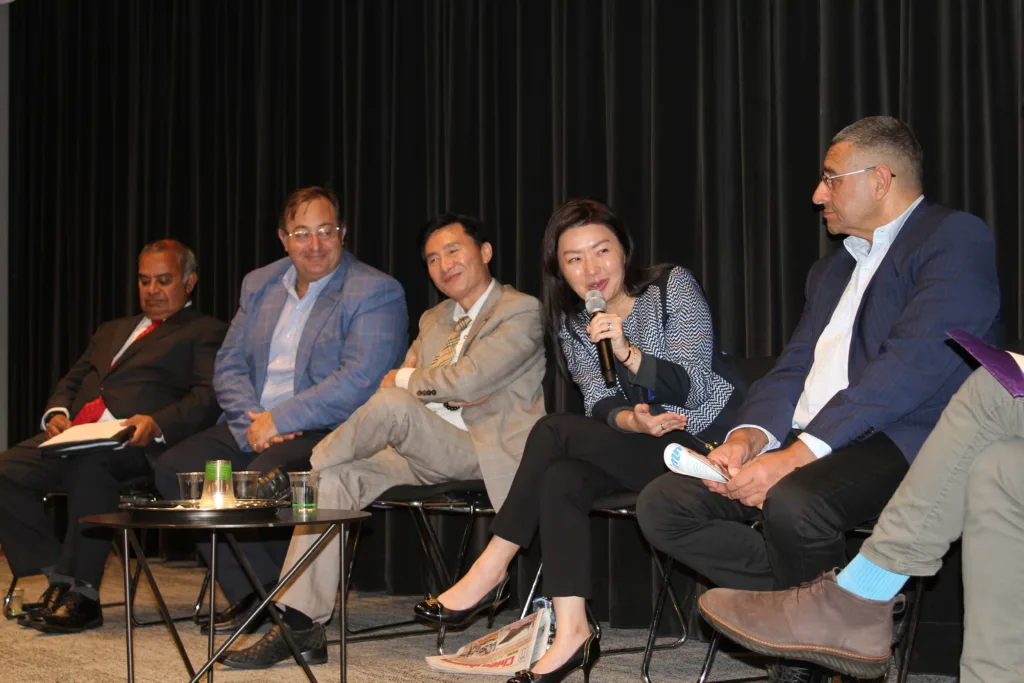
Mr Luthra discussed the challenges of keeping up with the fast-moving digital transformation in media, particularly in terms of support and recognition from government and partnerships. He discussed the current media landscape, particularly Meta’s recent decision to withdraw from Australia’s News Bargaining Code. Despite this, he said media buyers and planners continue to target programmatic and social media campaigns for government messaging instead of utilising local home-grown platforms.
Ms Skalkos elaborated, expressing her view that when campaigns are seen out of context, their messages are less effective compared to when they are featured on trusted media platforms that cover the same or related topics.
Ms Huang noted the importance of recognising established media outlets with decades of history, in contrast to new pop-up stations which struggle to gain credibility and validation. She discussed her publication’s deep community roots and the extensive network established over many decades, similar to most of the panellists. She mentioned that representatives from the Chinese Herald are invited to at least twenty events each week. This sentiment was shared by all publishers, with Mr Luthra noting that he has yet to see a Meta representative at any community or multicultural event.
Ms Huang and Mr Giang both explained that their communities feel a sense of ownership towards their publications because they curate content that directly addresses their interests and concerns. These outlets, like other multicultural media organisations, often serve as the primary point of contact for community-specific issues and broader mainstream matters that impact each community uniquely.
The panel discussion concluded with an engaging Question & Answer session, with the audience concerned about next steps and what IMMA plans to do to safeguard multicultural media for the future.
*All photos copyright The Greek Herald / Andriana Simos.
